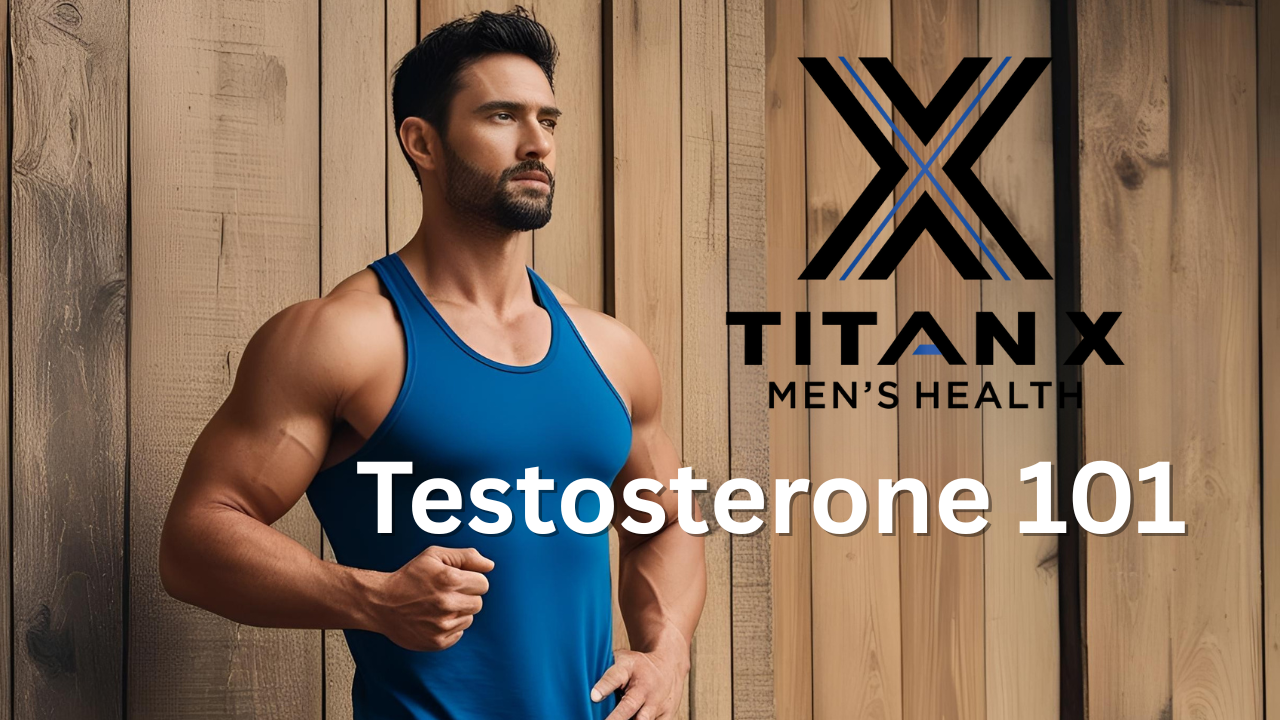When it comes to Men’s Health, few hormones are as vital—or as talked about—as testosterone. Often associated with masculinity, muscle, and libido, testosterone plays a much broader and more complex role in male physiology and overall well-being. In this article, Testosterone 101, we’ll break down what testosterone really does, how it works, and why maintaining healthy levels is essential for men at every stage of life.
What is Testosterone?
Testosterone is the primary male sex hormone and is a steroid hormone. It’s produced mainly in the testicles in men, although small amounts are also made by the adrenal glands. Women also produce testosterone, but in much lower amounts.
This hormone belongs to a class of hormones known as androgens, which are responsible for the development of male characteristics. Testosterone production ramps up during puberty and plays a central role in the development of secondary sexual characteristics, including:
- Increased muscle mass
- Deepening of the voice
- Growth of facial and body hair
- Development of the testes and penis
- Bone density increases
Testosterone Physiology
Testosterone production is tightly regulated by the hypothalamic-pituitary-gonadal (HPG) axis:
- The hypothalamus secretes gonadotropin-releasing hormone (GnRH).
- GnRH signals the pituitary gland to release luteinizing hormone (LH).
- LH stimulates the Leydig cells in the testicles to produce testosterone.
Testosterone is then released into the bloodstream and acts on various tissues. Most testosterone in the blood is bound to proteins like sex hormone-binding globulin (SHBG), while only a small fraction (free testosterone) is biologically active and available to tissues.
Why Testosterone Matters for Men’s Health
While testosterone is essential for sexual development, its importance extends far beyond the teenage years. Here are several key roles it plays in adult men’s health:
1. Muscle Mass and Strength
Testosterone promotes protein synthesis and supports muscle growth and maintenance. Low levels can lead to decreased muscle mass and physical performance.
2. Bone Density
Testosterone helps maintain bone mineral density. Men with low testosterone are at increased risk for osteoporosis and fractures as they age.
3. Mood and Mental Health
Testosterone has been linked to mood regulation, confidence, and cognitive function. Low levels are associated with symptoms of depression, irritability, and decreased mental clarity.
4. Sexual Health
Perhaps most famously, testosterone fuels libido and supports normal erectile function. Deficiency can lead to reduced desire and erectile dysfunction.
5. Energy and Vitality
Men with optimal testosterone levels often report higher energy, motivation, and improved quality of life. Chronic fatigue is a common symptom of low testosterone (also called hypogonadism).
What Causes Low Testosterone?
Testosterone levels naturally decline with age—typically about 1% per year after age 30. However, some men experience testosterone deficiency due to other causes, such as:
- Chronic illness (e.g., diabetes, obesity, metabolic syndrome)
- Stress and poor sleep
- Medications (e.g., opioids, corticosteroids)
- Testicular injury or infection
- Pituitary or hypothalamic disorders
How is Low Testosterone Diagnosed?
Diagnosis involves a combination of clinical symptoms and lab testing. Blood tests for total and free testosterone are usually done in the morning (when levels are highest). Low levels must be interpreted in the context of symptoms and other hormone levels like LH, FSH, and SHBG.
Treatment Options
If low testosterone is confirmed, treatment may include:
- Lifestyle interventions: Weight loss, resistance training, sleep optimization, stress management
- Testosterone Replacement Therapy (TRT): Creams, injections, and sometimes oral medications help restore hormone levels
TRT is not for everyone and comes with potential risks, including effects on fertility, blood pressure, and cardiovascular health. Men considering TRT should consult a healthcare provider with experience in men’s hormone health.
Final Thoughts…
Testosterone is more than just a hormone—it’s a vital contributor to a man’s physical, mental, and sexual well-being. While it’s normal for levels to gradually decline with age, excessive drops can affect quality of life. Understanding testosterone’s role and staying proactive about health—through lifestyle, testing, and medical support when necessary—can help men age with strength, energy, and confidence.


